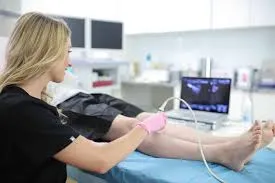How Vascular Specialists Diagnose and Treat Circulatory Issues

Circulatory issues affect millions each year. They can cause discomfort or lead to serious health problems. These issues occur when blood flow is restricted or impaired, impacting different body parts. Vascular specialists diagnose and treat many circulatory problems. They use advanced techniques and personalized care. Understanding their role helps patients make better health decisions.
What Are Circulatory Issues?
Circulatory issues arise from problems in the blood vessels, such as arteries or veins. They can affect blood flow to organs and tissues, leading to pain or other symptoms. Some common conditions include varicose veins, venous insufficiency, and peripheral artery disease (PAD). Varicose veins occur when vein walls weaken, allowing blood to pool and veins to swell. Venous insufficiency often leads to similar symptoms, as valves in the veins fail to function as needed, causing blood to flow backward.
Peripheral artery disease develops when plaque builds up in the arteries, reducing blood flow to the arms and legs. This may cause leg pain during physical activity, which often disappears with rest. Other circulatory concerns can also extend beyond the arms and legs. Pelvic congestive syndrome involves pain in the pelvic region due to problematic veins. Conditions like varicocele may also develop and require specialized care.
How Are They Diagnosed and Treated?
A proper diagnosis from begins with a comprehensive evaluation of symptoms and medical history. Vascular specialists may perform physical exams to identify visible signs like swelling or discoloration of the skin. Imaging tests often provide detailed insights. These tests allow specialists to assess blood flow within the vessels, helping them pinpoint blockages or damaged valves.
Treatment plans depend on the specific condition and its severity. For varicose veins, vein ablation is a common option. This minimally invasive procedure uses heat energy to close off problematic veins, redirecting blood to healthier ones. Venous insufficiency may also benefit from vein ablation. Peripheral artery disease often involves lifestyle adjustments alongside medication or procedures such as angioplasty to open blocked arteries. Pelvic congestive syndrome and varicocele may require treatments like embolization, which involves blocking problematic veins to alleviate symptoms.
How Do Vascular Specialists Help?
Vascular specialists play a central role in managing circulatory health. Their expertise spans a variety of conditions, enabling them to provide targeted and effective interventions. For many patients with leg pain or discomfort, these specialists can identify underlying causes and offer relief. They also manage complex conditions like pelvic congestive syndrome, tailoring each treatment plan to fit the patient’s unique needs.
Beyond physical treatments, vascular specialists offer long-term care and monitoring. Ongoing tests help treated conditions to be managed effectively, reducing the likelihood of recurrence. By collaborating closely with patients, they help maintain overall circulatory health. This collaboration is often key to improving quality of life and preventing future complications.
Take Control of Your Circulatory Health
If you’re experiencing symptoms like leg pain, swelling, or visible veins, consulting a vascular specialist may provide clarity and relief. They can guide you through advanced diagnostic and treatment options, offering tailored solutions for your needs. Reach out to a vascular specialist today to learn more about strategies for managing circulatory issues and restoring comfort to your daily life.





